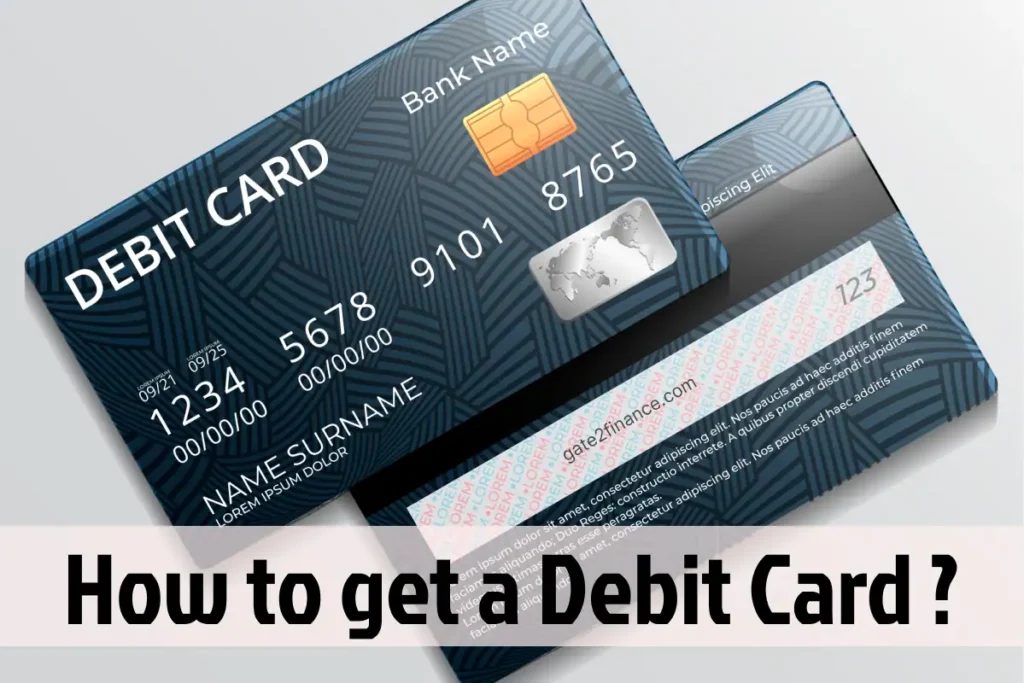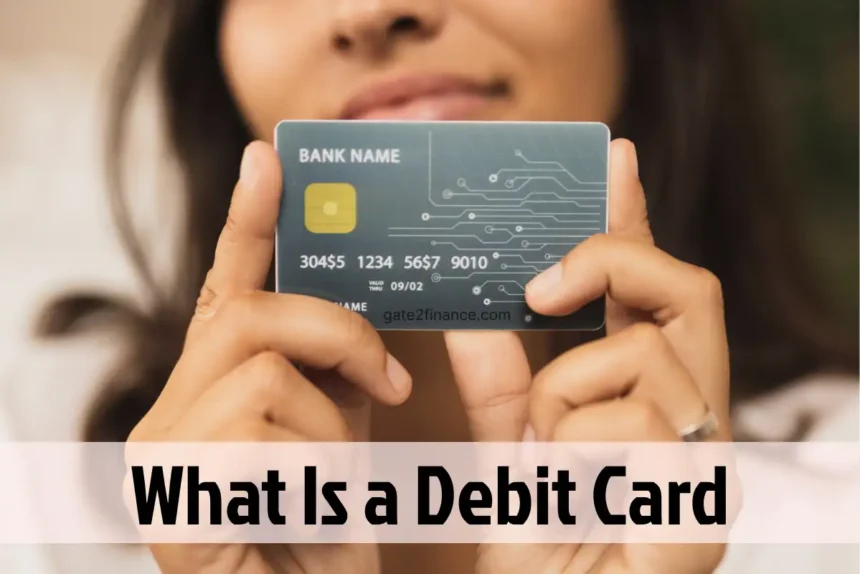What is a Debit card ?
A debit card, often known as a cheque card or bank card, is a type of payment card that allows you to make transactions without using cash. The card usually consists of the bank’s name, a card number, the cardholder’s name, and an expiration date, on either the front or back. Many new cards now have a chip on them, which allows people to use their card by touch (contactless) or by inserting the card and keying in a PIN, as with swiping the magnetic stripe. Unlike credit cards, these cards require the cardholder to have money in their bank account at the moment of purchase, which is then transferred straight to the merchant’s account.
Prepaid debit cards employ stored value to make payments, whereas traditional debit cards send a message to the cardholder’s bank to withdraw funds from their designated account. Some payment card numbers are only issued for online use, without a physical card. This is known as a virtual card.
Debit cards function similarly to ATM cards, allowing for rapid cash withdrawal. Merchants may provide cashback to customers, allowing them to withdraw cash alongside their purchase. There are normally daily limits on how much cash can be withdrawn. Debit cards are often plastic, but can also be metal or wood.
How dose Debit Card Works ?
A debit card is one that is linked to a checking account. It looks like a credit card, but it acts differently. The amount of money you can spend on a debit card is determined by the amount of funds in your account, not by a credit limit, as credit cards are. Your debit card can be electronically linked to your account or be used offline.Offline cards take longer to process transactions. Unlike a credit card, you do not incur debt when you use a debit card because you are accessing funds that you already have. You are not required to make monthly minimum payments on a debit card because there is no debt to repay.
A debit card can be used to withdraw cash from an ATM or to make purchases just like a credit card. Debit cards may require a personal identification number (PIN), but many can be used without one. Debit cards take funds directly from the associated account. Your spending is limited to your checking account balance, and the amount you can spend fluctuates accordingly.
How to get a Debit Card ?

When you create a checking account with a bank or credit union, you will normally receive a debit card.
Compare the services and fees of several banks and credit unions. Go to the website or come in person. Determine what the charge is if you:
- Have a checking account.
- Use a debit card.
- Get cash from ATMs in different banks.
- Keep less money in your account than the bank requires.
- Spend more than what is on your account.
Compare the answers. Find a bank or credit union that suits your needs.
Advantage and Disadvantages of debit cards
The advantages and disadvantages of debit cards will help you understand what scenarios they’re useful for and when a credit card is a better option. In most circumstances, a debit card is an excellent option for withdrawing cash from your checking account or making complete payments on items.
Because these purchases deduct funds from your account immediately, debit cards may be an excellent strategy to avoid spending more than you have. However, debit card transactions may result in overdraft fees and provide limited fraud protection. Continue reading below for more information on the benefits and drawbacks of debit cards.
Advantage of debit cards
- They’re quite convenient.They are speedier than writing checks and commonly accepted by retailers. Debit cards are especially useful if you need to withdraw cash from an ATM or receive cash back after making a purchase at a business.
- They normally do not charge any annual fees.Even if you only sometimes use your debit card, you will not be charged to keep it active. However, there may be regular costs associated with your checking account.
- They can aid with budgeting by discouraging unnecessary purchases.A debit card can help you keep track of your spending because it withdraws money from your checking account immediately when you make a purchase. Using a debit card may help you avoid making huge, impulse purchases that you cannot afford.
- They do not charge interest.Debit card payments pull money out of your account immediately, so you don’t accumulate a balance on which to pay interest. This is an important distinction between a credit card and a debit card.
Disadvantages of debit cards
- They offer limited fraud protection.If you report a stolen debit card to your bank within two days, you may be held liable for up to $50 in fraudulent transactions, as per the Federal Trade Commission. If you tell your bank after two business days, you may be accountable for up to $500 in fraudulent charges. If you notify your bank after 60 days, you risk being held accountable for all fraudulent charges. Debit cards often have less fraud protection than credit cards, so avoid using them for online purchases.
- Your checking account balance determines your spending limit.A debit card is useful for modest transactions, but it is not the greatest solution for major expenses that exceed your account balance or that you prefer to pay off over time. While budgeting for significant expenses is preferable, a credit card can also help you pay for them.
- They may incur overdraft costs.If you don’t keep a tight eye on your checking account balance when using a debit card, you risk overdrawing funds. Overdraft permission allows these transactions to take place by charging a fee. You can opt out of overdraft consent, but your debit card will be refused for unaffordable purchases.
- They do not improve your credit score.Because debit cards are linked directly to your checking account, they have no effect on your credit score. Debit cards are ineffective for building credit history.
FAQs
Are debit cards the same as credit cards ?
No, debit cards and credit cards are different. Debit cards deduct funds directly from your bank account, while credit cards allow you to borrow money up to a certain limit and pay it back later.
Can I use a debit card for online purchases ?
Yes, debit cards can be used for online shopping. You’ll typically need to enter your card details and sometimes an additional security code provided by your bank.
What should I do if my debit card is lost or stolen ?
If your debit card is lost or stolen, contact your bank immediately to report it. They will deactivate the card to prevent unauthorized use and may issue you a new one.
Do debit cards have any fees ?
Some debit cards may have fees associated with them, such as monthly maintenance fees or overdraft fees if you spend more than what’s available in your account. It’s essential to check with your bank about any potential fees.
Can I use my debit card abroad ?
Yes, you can use your debit card internationally in most cases. However, it’s essential to notify your bank beforehand to avoid any issues with transactions being flagged as suspicious activity. Additionally, be aware that foreign transaction fees may apply.







